A PICTURE has emerged allegedly showing bags of ammonium nitrate stacked up in the warehouse that exploded in Beirut killing at least 135 people.
Lebanese authorities have placed port officials under house arrest and reports have emerged the explosive stash was seized from a mysterious Russian businessman.
Pictures allegedly showing ammonium nitrate stored in Beirut’s dockside Warehouse 12
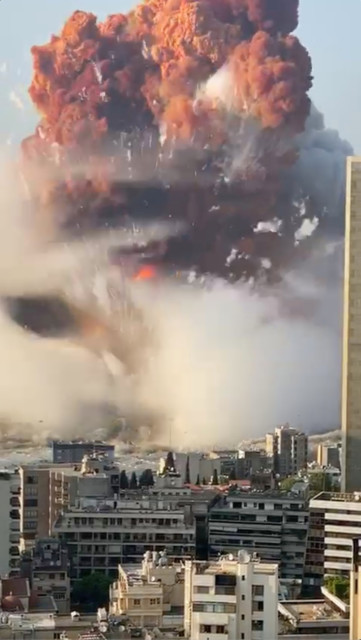 The explosion was one of the biggest non-nuclear blasts of all time
The explosion was one of the biggest non-nuclear blasts of all time
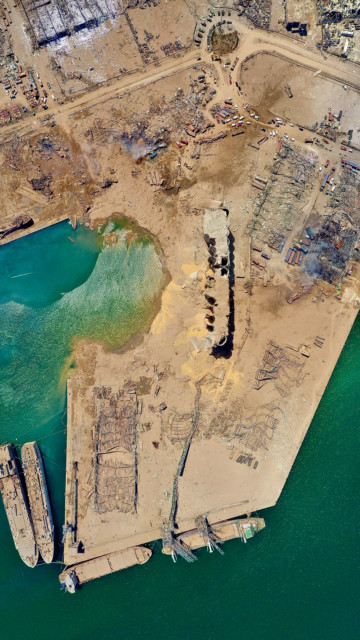 A section of Beirut’s port was completely blown apart in the explosion
A section of Beirut’s port was completely blown apart in the explosion
Questions are being asked as to how such as disaster could be allowed to happen as officials blamed the explosion of 2,750 tonnes of ammonium nitrate stored in a warehouse.
Lebanon’s leaders have vowed those responsible will “pay the price” after the “nuclear-like” explosion left 300,000 people homeless.
Port officials have however pointed the finger at the government as they claimed to have repeatedly warned the authorities of the dangerous cargo at Warehouse 12.
The startling photo appears to show the storage facility shoddily packed with one ton bags of the explosive – which is known to be used by terrorists in homemade bombs.
Investigative website Bellingcat analysed the photo and said it does appear to match the dock warehouse which exploded yesterday afternoon.
BBC journalist Riam Dalati also tweeted a copy of the photo, saying it appears to show workers stacking the salvaged ammonium nitrate at Warehouse 12.
At least 5,000 people were injured in yesterday’s blast which flattened buildings, ripped people’s clothes from their bodies and damaged properties up to six miles away.
The explosion was so large it could be heard 110 miles across the sea in Cyprus.
It has emerged the powder-keg chemicals was shipped by Russian businessman Igor Grechushkin who has been accused of abandoning it in Beirut.
The killer cargo was confiscated in 2014 from the Moldovan-flagged ship Rhosus en route from Batumi in the ex-Soviet republic of Georgia to Mozambique
It had stopped due to “a malfunction” in Beirut where sailors were forced to stay on board to ensure its safety.
Sailors protested that Grechushkin claimed he had gone bankrupt and “abandoned the ship” – going on hunger strike before finally being allowed to go ashore.
 Igor Grechushkin has been accused of abandoning the chemical in Beirut
Igor Grechushkin has been accused of abandoning the chemical in Beirut
 Igor Grechushkin’s wife Irina
Igor Grechushkin’s wife Irina
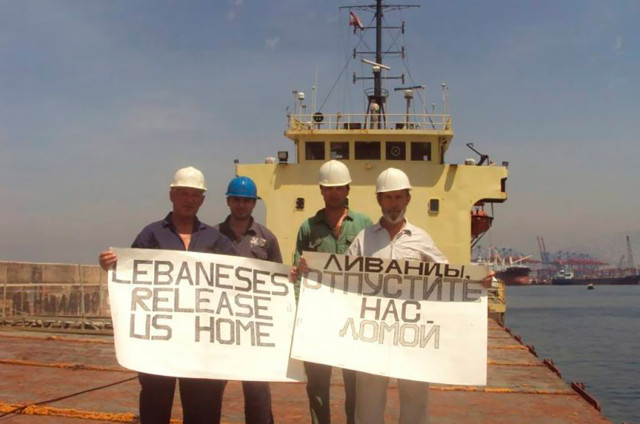 Sailors beg for help in Beirut after allegedly being abandoned by Igor Grechushkin in 2014
Sailors beg for help in Beirut after allegedly being abandoned by Igor Grechushkin in 2014
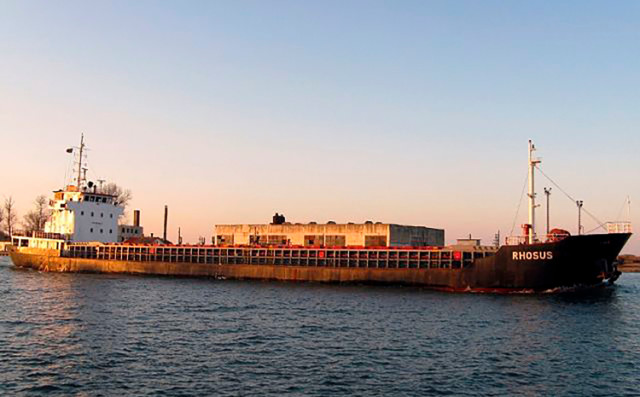 The ship Rhosus which allegedly brought the cargo to Beirut
The ship Rhosus which allegedly brought the cargo to Beirut
Grechushkin was said to have paid a “huge penalty” for transporting the cargo without authority which led to him going bust – later moving to Cyprus with his wife Irina.
Neither the businessman nor his family have yet commented on the explosion, which had one fifth the power of a nuclear bomb.
The Russian captain of the ship Boris Prokoshev, now 70, warned at the time of the deadly nature of the cargo.
He said: “The vessel’s owner abandoned it and we were abandoned too.
“We were living on a powder keg for ten months without being paid.”
Anger is mounting as Lebanon’s government and customs officials are point fingers at each other as to who is the blame for the monstrous explosion.
Reportedly the blast is believed to have been sparked when a reckless welder caused a fire at nearby Warehouse 9 – which then spread to the explosive Warehouse 12.
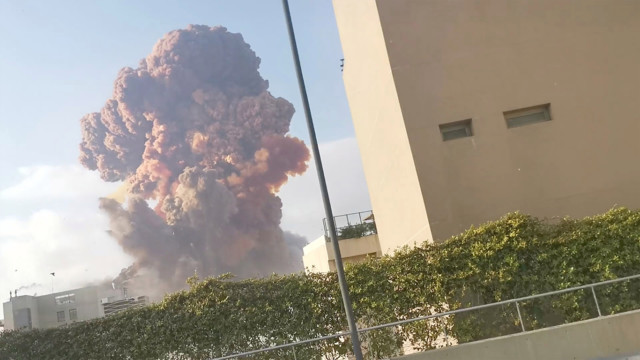 The explosion could be heard 110 miles away in Cyprus
The explosion could be heard 110 miles away in Cyprus
President Michel Aoun said the government was “determined to investigate and expose what happened as soon as possible, to hold the responsible and the negligent accountable.”
Sources close to the investigation blamed the incident on “inaction and negligence”, saying “nothing was done” by committees and judges involved in removing the explosives.
The cabinet ordered port officials involved in storing or guarding the material since 2014 to be put under house arrest.
Badri Daher, Director General of Lebanese Customs, told broadcaster LBCI that customs had sent six documents to the judiciary warning that the material posed a danger.
He said: “We requested that it be re-exported but that did not happen. We leave it to the experts and those concerned to determine why.”
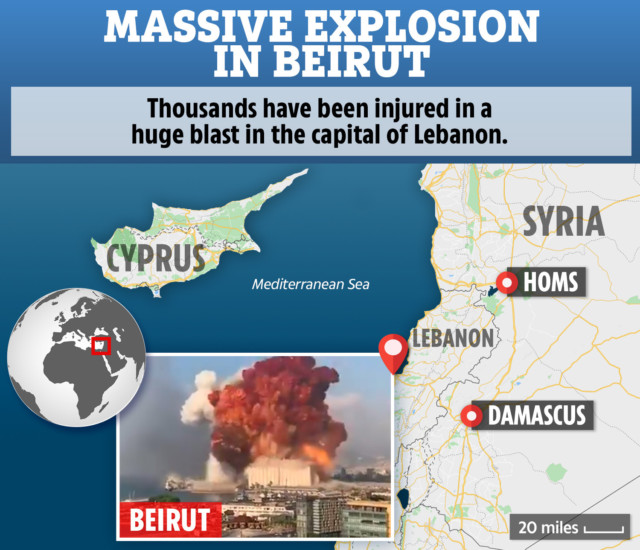
Another source close to a port employee said a team that inspected the ammonium nitrate six months ago warned that if it was not moved it would “blow up all of Beirut”.
Two documents revealed that Lebanese Customs had asked the judiciary in 2016 and 2017 to ask the “concerned maritime agency” to re-export or approve the sale of the ammonium nitrate.
One of the documents cited similar requests in 2014 and 2015 – suggesting repeated warnings about the danger were overlooked by the authorities.
Prime Minister Hassan Diab vowed those responsible will “pay the price” as rescue operations continue in Beirut.
International aid is being mobilised across the world to help support the victims and search for those potentially still trapped beneath the rubble.
Foreign Secretary Dominic Raab said the Lebanese prime minister told him there would be a “full, thorough and rigorous investigation to get to the truth.
He said: “I think the people of the Lebanon deserve no less – and that there will be full accountability.”
Mr Raab added the the details of Brits caught up in the Beirut blast was still being established – with a number known to have been injured.
HMS Enterprise will carry out survey work in the port to establish the extent of the damage.
British engineering experts have found the blast was “unquestionably” one of the largest non-nuclear explosions ever to take place.
A team from the University of Sheffield has calculated the strength of the blast based on the videos and photographs of the catastrophe.
They believe the explosion was the equivalent of 1,000 to 1,500 tonnes of TNT.
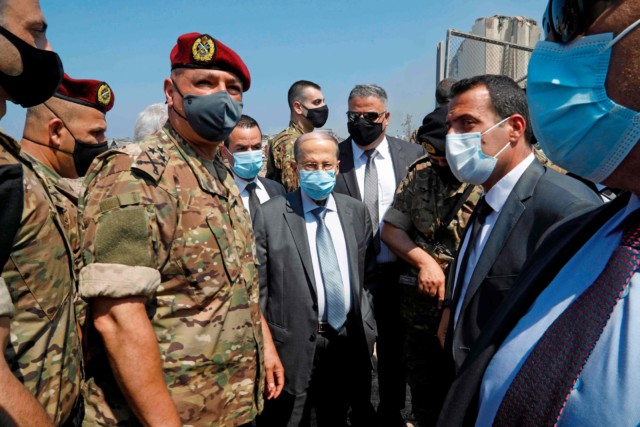 Lebanon’s President Michel Aoun visits the site of the massive explosion
Lebanon’s President Michel Aoun visits the site of the massive explosion
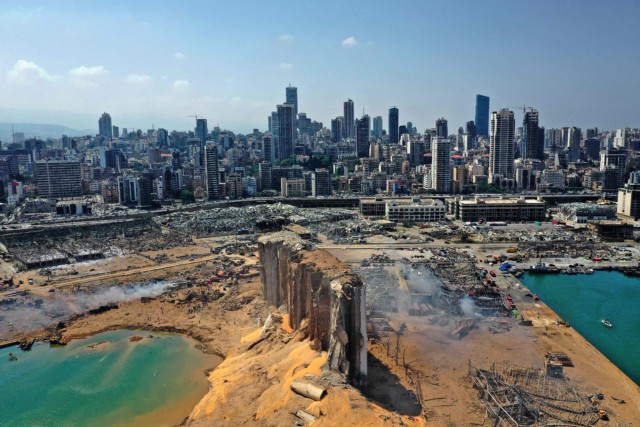 Beirut has been devastated by the blast that killed 135 people
Beirut has been devastated by the blast that killed 135 people
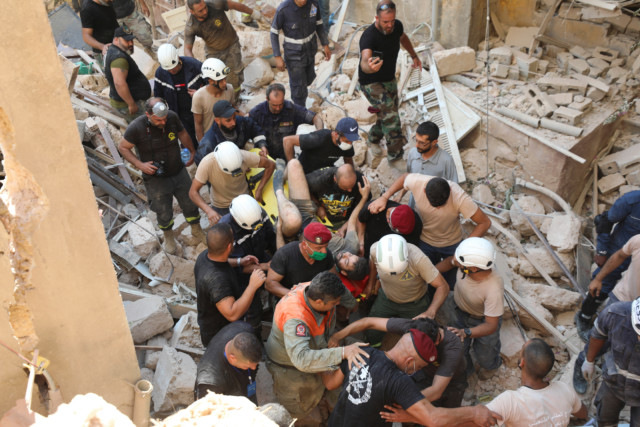 A survivor is taken out of the rubble after the massive explosion in Beirut
A survivor is taken out of the rubble after the massive explosion in Beirut
As many as 300,000 people may have been left homeless, Beirut’s governor Marwan Aboud said, with many buildings reduced to an uninhabitable mess of rubble and glass.
There are concerns of food shortages and unrest in the city, with the blast compounding anger stemming from a severe economic crisis and the coronavirus pandemic.
Many nations have stepped up to offer aid alongside Britain, including France, Germany, Poland, the Netherlands, Russia, the Czech Republic, Iran and the US as the world mourns the disaster.
US Pentagon sources also described the blast as a tragic accident – but President Donald Trump said he believed it was caused by “a bomb”.
Trump said his forces stood ready to assist after the “terrible attack” claiming his security advisors “seem to think it was an attack, a bomb of some kind.”
US defence officials later contradicted Trump and former White House aides claimed his remarks were “wildly irresponsible”.
The Foreign Office confirmed several staff based at the embassy more than three miles from the port needed hospital treatment but declined to give any details.
A spokesman said: “All Embassy staff are accounted for. A small number have sustained non- life-threatening injuries and where necessary are receiving medical attention.”



















